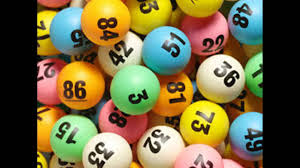The Lottery’s Double Standard
Last month, State Treasurer Deborah Goldberg announced a renewed push for online lottery games, hoping to pass a bill in the upcoming legislative session. The merits of an online lottery are worth considering, but what’s interesting about the Treasurer’s latest statement is how she characterizes the Lottery’s profitability in the context of this push.
At first, the Treasurer says the Massachusetts Lottery “is the most successful in the country.” But immediately after, she mentions that 2016 profits were precarious. Without the sales boost from the Powerball jackpot, Treasurer Goldberg claims she “might be reporting a lottery downturn,” especially considering the growth of Massachusetts’ casino industry. These two points – that the Lottery is at once massively profitable and facing a potential crisis – urge the Legislature to move quickly in expanding the Lottery’s reach.
The argument is reflective of the way the Lottery has sold itself for years. It implies that the Lottery is extremely successful yet teetering on the brink of some impending doom. That image isn’t necessarily false, but it is extremely convenient. Consider how, for each of the last 5 years, the Lottery has crowned itself for breaking its sales record. This annual reminder of the Lottery’s success would seem to indicate that it is a strikingly healthy institution. But when the Lottery pushes for more funding – whether that be for advertising or online games – the narrative shifts to its apparent demise.
The problem with this mixed message is that it distracts from the Lottery’s financial reality. That reality is that real profits have been declining for over a decade despite highly publicized sales records. The reasons for this anomaly have not been fully disclosed by the Lottery. Instead, each Lottery administration lauds itself whenever it breaks a nominal (in other words, meaningless) sales record, only to cry danger when requesting more resources. The push for online gambling perfectly epitomizes this contradiction.
Now, online gaming may in fact pull the Lottery out of its sales funk, but it’s impossible to tell unless the Lottery fully acknowledges its decade-long downturn. Even if that does happen, the Lottery deserves greater scrutiny on its proposed plan. A recent UMass-Amherst survey suggests that the Lottery is exploiting at-risk and problem gamblers for billions of dollars. Will this number increase with the advent of online gaming? In a similar vein, there are numerous ethical questions about the Lottery that consistently go unanswered. Is it right that we spend over millions annually trying to convince people to gamble away their money? Is it right that Massachusetts makes nearly $1 billion per year through what amounts to a regressive tax? Is the money – which goes to cities and towns in the form of local aid – distributed fairly?
Before pushing forward with online gaming, Massachusetts needs to take a step back and ask these fundamental questions about the Lottery’s function. If the Lottery continues its “expand at all costs” mentality, taxpayers are left vulnerable to the unchecked expansion of an already massive government institution.



